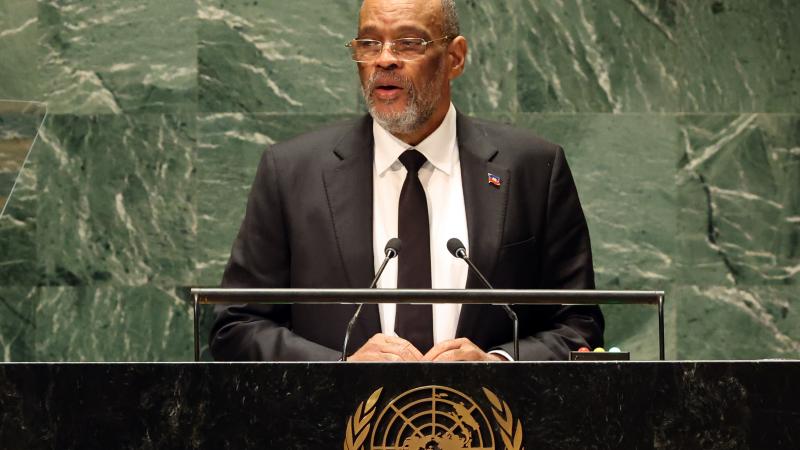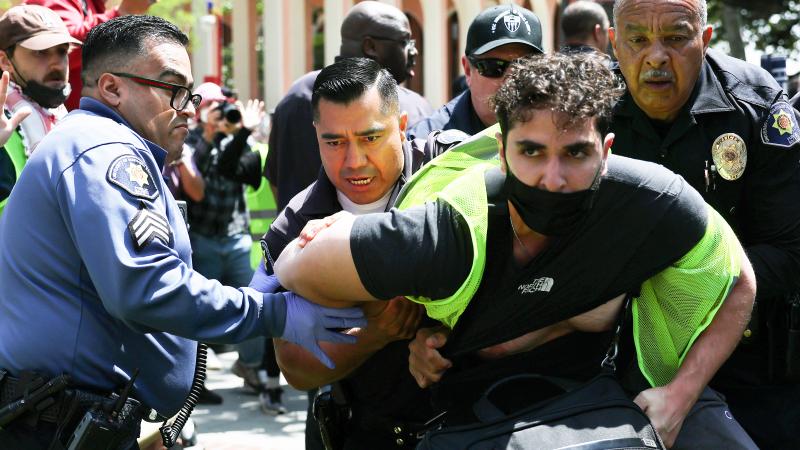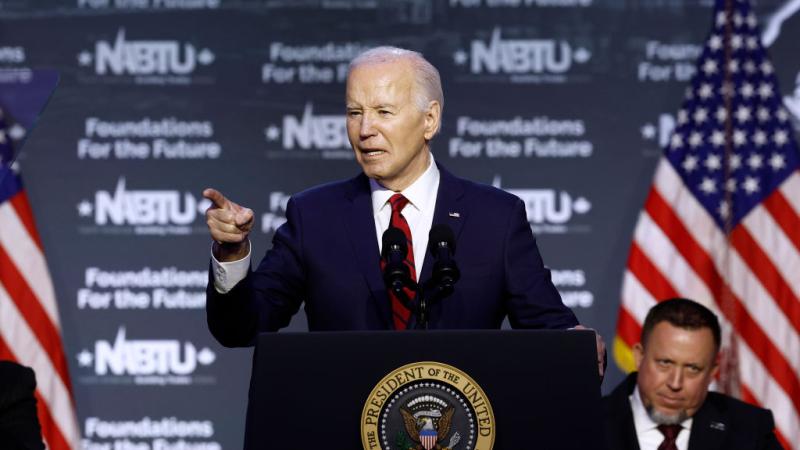Courts take aim at discriminatory effects of Biden civil rights pick's Obama-era policies
Federal pressure on sexual misconduct proceedings is a "backdrop" that strengthens evidence of anti-male bias.
Last year, a federal appeals court threw out a lawsuit charging a university with anti-male bias despite admitting the accused student's sexual misconduct proceeding "looks more like a railroading."
Last week, the 10th U.S. Circuit Court of Appeals gave a very different answer involving the same university.
The court reinstated an expelled male student's Title IX lawsuit against the private University of Denver, finding that the "investigation was replete with procedural deficiencies" that uniformly favored his female accuser "despite substantial reasons to discount her allegations."
The three-judge panel found that unlike the case dismissed last year, this case showed specifically anti-male bias — not merely gender-neutral bias against all accused students. The university argued in both cases that its process simply favored accusers, not females as such.
Statistics presented by the accused student "showed disparities in how DU handled complaints brought by women versus complaints brought by men, as well as disparities in how it treated complaints against women versus complaints against men," his lawyer Adrienne Levy told Colorado Politics.
It's the second federal appeals court in two weeks to find that the Obama administration's pressure on universities to favor accusers in sexual misconduct proceedings provided a "backdrop" that strengthened case-by-case "circumstantial evidence" of anti-male bias.
The twin rulings suggest more congressional scrutiny will fall on Catherine Lhamon, the former Obama official who enforced its "Dear Colleague" guidance as head of the Department of Education's Office for Civil Rights.
President Joe Biden, the architect of the Obama administration's Title IX policy, nominated Lhamon for her old job more than a month ago, but she has yet to be scheduled for a confirmation hearing in the relevant committee.
In a joint op-ed last week, an attorney for accused students and the coauthor of "The Campus Rape Frenzy" highlighted Lhamon's public threats to withhold federal funding from colleges that resisted the guidance, which was not legally enforceable. (Former Education Secretary Betsy DeVos rescinded it in 2017.)
"Courts resisted and deferred to campus excuses" that their proceedings at worst showed pro-accuser bias, "but as the number of students harmed [h]as grown, the railroading is no longer being ignored or rationalized away," criminal defense lawyer Scott Greenfrield, a vocal critic of Lhamon, blogged about the 10th Circuit ruling.
Hid 'medical assessment portion' of rape kit
According to a summary by Chief Judge Timothy Tymkovich for the unanimous panel, "John Doe" and "Jane Roe" had a nonsexual romantic relationship five years ago that he repeatedly tried to end.
That changed when she "led" him to her dorm room on a Friday night when both were drunk. John recalled that they tried to have sex but Jane didn't remember the evening at all.
That Saturday morning, John said she prompted him to have sex but abruptly ended the intercourse, left the room and came back 10 minutes later to talk about their relationship, at which point he left.
According to Jane, it was John who initiated while she was still "pretty drunk," and she didn't consent. But the summary says she didn't "verbally or physically resist" before going to the bathroom, then argued with him "about what had happened."
Though a friend said Jane was "very upset" after overhearing John tell another woman at a party about how she got up in the middle of sex, both Jane and John agree she told him, "You didn't hurt me" and she "willingly gave" her virginity to him.
"Over the next few days, Jane relayed to over a dozen friends and acquaintances conflicting accounts of the encounter," the summary says. She told him that others believed John had sexually assaulted her — either Friday or Saturday — but she remained conflicted.
She got a "rape kit" done at a friend's urging after John refused to talk to her about her unexplained bruises, but Jane refused to turn over "the medical assessment portion" of the report to university investigators.
Jane filed a complaint against John several weeks later, by her own telling, because he told "three other students about what happened." He wasn't allowed to appeal the resulting guilty finding or expulsion.
'Disturbing' procedural irregularities
The appeals court pointed to much more evidence of anti-male bias in the second "Doe" case against the University of Denver than the first it tossed a year ago.
Investigators interviewed the two parties as well as 11 people with whom Jane discussed the incidents, but not the five people John recommended to affirm his story. He only learned this fact — and the specific allegations against him — after being given the preliminary report.
The university responded by interviewing John's psychologist, Mary Bricker. When she saw an inaccurate summary of her interview, Bricker told the university the investigator had "made up her mind already" during the interview, not even bothering to ask her questions.
"John has sufficiently shown evidence of differential conduct that plausibly was on the basis of his sex," Judge Tymkovich wrote, citing one-way and "disturbing" procedural irregularities.
The amended investigation report excluded most of Bricker's statements as prohibited "character testimony" and "expert opinion." Investigators said they ignored John's witnesses for reasons they didn't apply to Jane's — that they expected "duplicative" testimony and wanted to "keep this matter as private as possible."
The final investigation report "can be construed as ignoring, downplaying, and misrepresenting inconsistencies" in Jane's story. For example, it inflated how many witnesses said Jane told them the same version of events and falsely claimed a "compelling" witness backed Jane's version.
Investigators ignored reams of inconsistencies in Jane's various accounts as well as her ulterior motives: She had told "multiple people" Saturday about the sexual encounter but only termed it nonconsensual after she saw John with the woman at the party.
Despite Jane's refusal to turn over the medical assessment from her rape kit, investigators termed her bruises "consistent with physical resistance" on Saturday morning and "put a lot of weight" on what pages she did give them. (John claimed Jane "repeatedly stated" she got the bruises Friday night.)
Unusually in Title IX cases, John had objective evidence of the university's different approach to sexual misconduct complaints by men.
It did not "formally investigate" any of 21 reports by men between 2016 and 2018, but investigated 14 of 105 by women. It also suspended a male for "touching" but not a female for the same violation.
"Title IX plaintiffs ... will rarely have direct evidence or even strong circumstantial evidence sufficient to overcome a school's 'anti-respondent, not anti-male' argument," the ruling concluded. But John has met the burden of showing "the University's explanations of its conduct were pretextual" for sex discrimination.
















